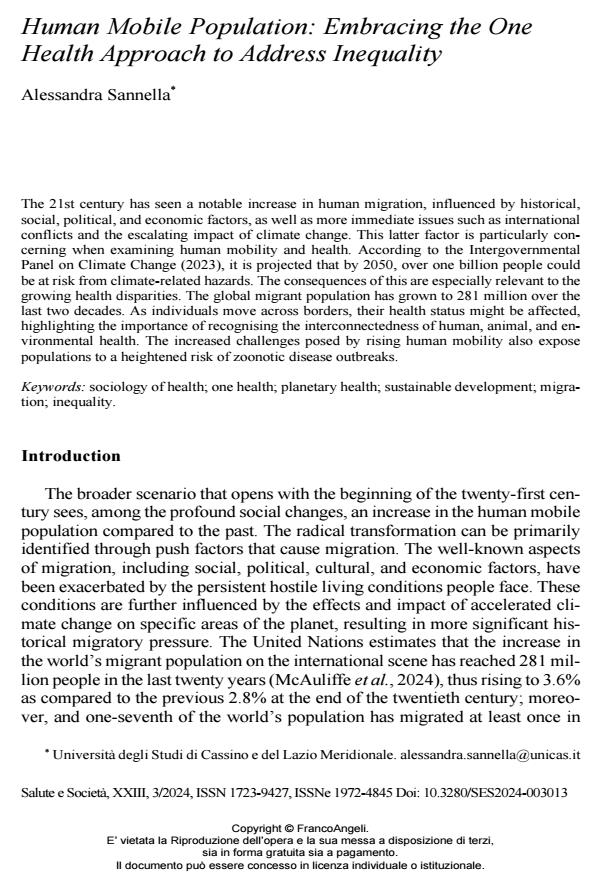Human Mobile Population: Embracing the One Health Approach to Address Inequality
Journal title SALUTE E SOCIETÀ
Author/s Alessandra Sannella
Publishing Year 2024 Issue 2024/3
Language English Pages 12 P. 181-192 File size 239 KB
DOI 10.3280/SES2024-003013
DOI is like a bar code for intellectual property: to have more infomation
click here
Below, you can see the article first page
If you want to buy this article in PDF format, you can do it, following the instructions to buy download credits

FrancoAngeli is member of Publishers International Linking Association, Inc (PILA), a not-for-profit association which run the CrossRef service enabling links to and from online scholarly content.
The 21st century has seen a notable increase in human migration, influenced by historical, social, political, and economic factors, as well as more immediate issues such as international conflicts and the escalating impact of climate change. This latter factor is particularly concerning when examining human mobility and health. According to the Intergovernmental Panel on Climate Change (2023), it is projected that by 2050, over one billion people could be at risk from climate-related hazards. The consequences of this are especially relevant to the growing health disparities. The global migrant population has grown to 281 million over the last two decades. As individuals move across borders, their health status might be affected, highlighting the importance of recognising the interconnectedness of human, animal, and environmental health. The increased challenges posed by rising human mobility also expose populations to a heightened risk of zoonotic disease outbreaks.
Keywords: sociology of health; one health; planetary health; sustainable development; migration; inequality.
Alessandra Sannella, Human Mobile Population: Embracing the One Health Approach to Address Inequality in "SALUTE E SOCIETÀ" 3/2024, pp 181-192, DOI: 10.3280/SES2024-003013